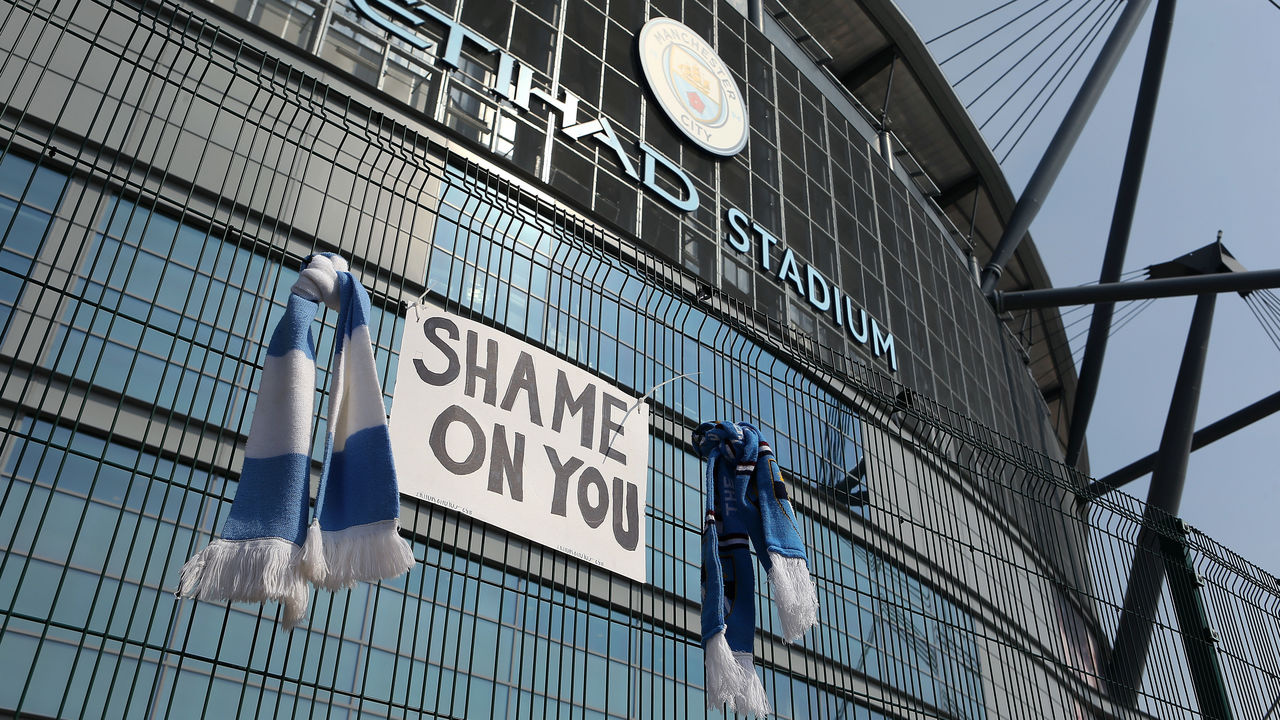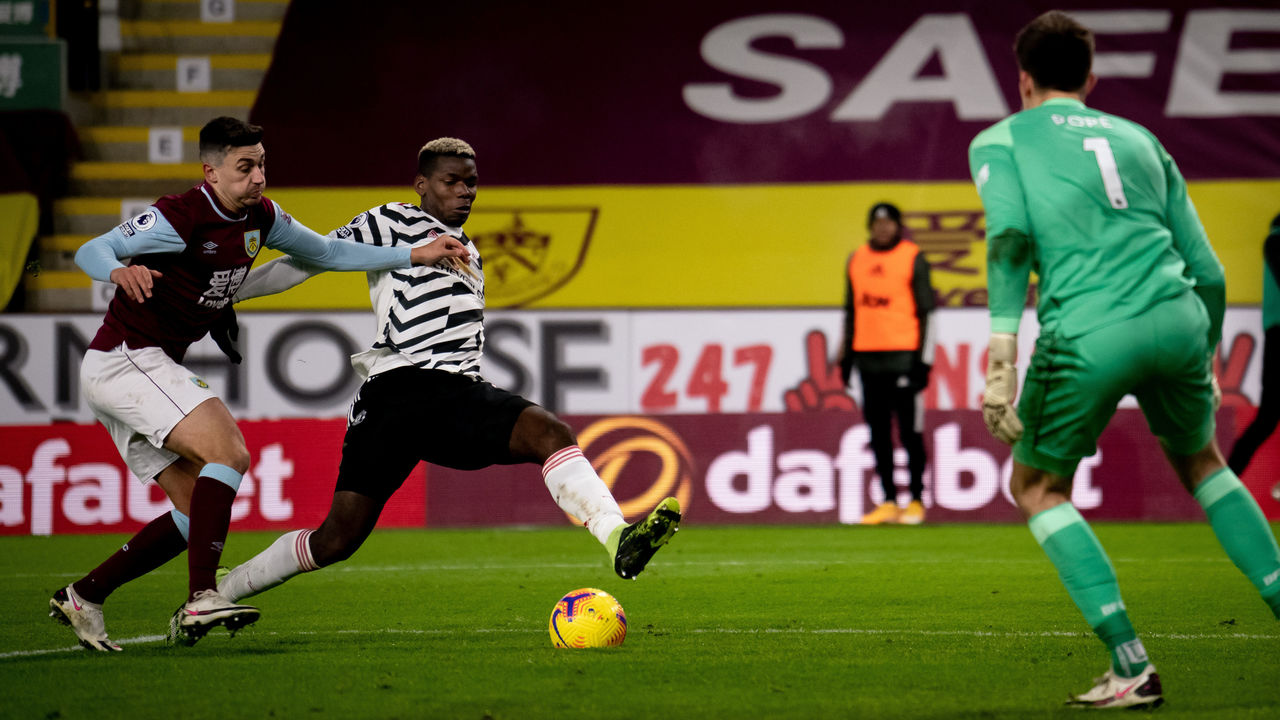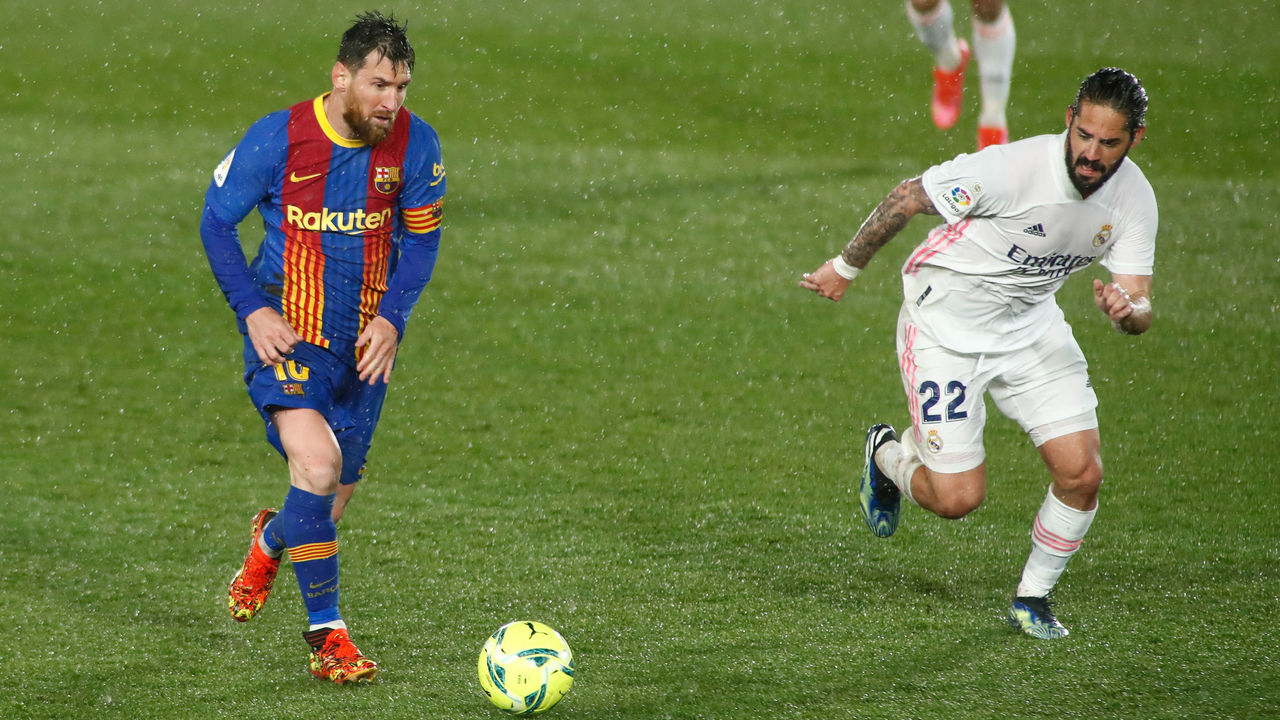The collapse is underway. Chelsea fans danced and chanted on the streets outside Stamford Bridge. First it was them, then Manchester City, then Barcelona.
The European Super League started to disintegrate when Chelsea reportedly became the first club to request its removal from the competition Tuesday, only two days after it was introduced. And the carnage is spectacular.
A ludicrous plan to begin with, it was a 20-club system where success was guaranteed and failure was rewarded for 15 sides. Each season, five further teams would be granted entry on sporting merit, but they wouldn’t receive the same financial windfall as the others. Competing with those 15 teams for players – and, as a result, competing with them on the pitch – would be an uphill struggle.
“This is not a sport,” Pep Guardiola said of the Super League before the dominoes fell Tuesday. The fact that the owners of the team he manages, Manchester City, signed up for the project couldn’t temper the Spaniard’s passion for the principles of football and who the sport is for.
And therein lies what killed this egregious plot. The 12 founding Super League clubs could form a competition designed to assure them of financial dominance and protect their elite status, but they were outdone by their most formidable and often overlooked opponents: the fans.

The financial chasm
There is a legitimate argument that domestic football would’ve coped, and even thrived, without the Super League clubs.
UEFA has facilitated a financial chasm that has reduced the competitiveness of domestic leagues. Stockpiling its flagship competition, the Champions League, with clubs from just five countries has warped the standings in each nation.
The “big six” has entered the Premier League lexicon, Barcelona and Real Madrid remained top of the pile in Spain in spite of their mystifying mismanagement, Bayern Munich have won seven straight Bundesliga titles, Juventus have collected nine consecutive Scudettos, and Paris Saint-Germain stroll to Ligue 1’s summit whenever they can be bothered.
UEFA’s 2018 financial report revealed 30 of Europe’s giants earned almost as much revenue as the other 682 top-flight clubs combined.
The Super League would’ve made it even worse. Manchester United would’ve taken time off from their greedy midweek pursuits with a charitable weekend jaunt to somewhere like Burnley, and the result wouldn’t have mattered to them. They could’ve finished sixth, seventh, or even been relegated from the Premier League, yet they would still be a Super League team. And with even more spending clout than they currently wield over their domestic, non-Super League rivals, on most Saturdays they would’ve thumped the likes of Burnley with a reserve squad.

Showing the Super League rebels the middle finger would’ve been the only way for domestic leagues to maintain their competitiveness. Discarding the glitterati could’ve also restored parity, making it much rarer for teams to win leagues by 20-point margins and go on unbeaten runs that last for over a year. The ultimate dream of European football would become more attainable.
“Football in the U.K. is the best in the world. It’s the best in the world because of one simple principle: that a pub team, The Dog and Duck, could form a football team that could rise all the way up through the pyramid and play in the Premier League,” Tony Kleanthous, chairman of English fifth-tier side Barnet, explained.
“Once you’ve damaged that principle, you’ve damaged the very fabric of the sport.”
‘They will never own it’
The war between football and its fans isn’t over. Changes such as the Champions League reforms – we’re set for 100 more matches from the 2024-25 campaign – should require the approval of supporters. There were no fans who thought an overinflated group stage would enhance the Champions League.

Fans must be allowed to shape the future of their game or, as the Super League backlash indicated, they will walk away. Supporters will feel empowered by the Super League collapse and should form more legitimate unions so they can have greater influence over the sport.
Governments and football federations must listen to supporters’ grievances about the Champions League and collapsing Super League, but they should also ask season-ticket holders and club members whether or not they want to keep VAR. Ask lower-league fans in England if they want Premier League clubs’ under-23 teams competing in the EFL Trophy. Ask French fans if they actually wanted the Coupe de la Ligue to be discontinued.
These are just a few examples of the many recent changes made to our game without our consent.
As for the greedy giants – AC Milan, Arsenal, Atletico Madrid, Barcelona, Chelsea, Inter Milan, Juventus, Liverpool, Manchester City, Manchester United, Real Madrid, and Tottenham Hotspur – withdrawing from the Super League isn’t enough to win back all of their supporters’ affections. The damage might already be done.
The clubs’ lack of concern for or basic understanding of their fans showed that the boardrooms are completely detached from what football is about. What is the main draw of Liverpool in the Champions League? It’s the flags and the noise of the Kop; those famous European nights at Anfield where a stadium, not the 22 players on the pitch, seems to dictate the outcome of a game. How could Fenway Sports Group expect the Reds’ predominantly working-class populace around that ground to attend Super League matches when the owners completely disregarded them in pushing for the competition?
Sincere apologies are needed, and so are other gestures that show genuine remorse for the emotional harm inflicted on their supporters. Changes of ownership would be nice as well.
“What you’ve got is something created over 100 years ago that was fantastic,” Kleanthous said. “And you’ve got a few rich people today that think it’s theirs, that think they own it. They will never own it; the fans own it.”


